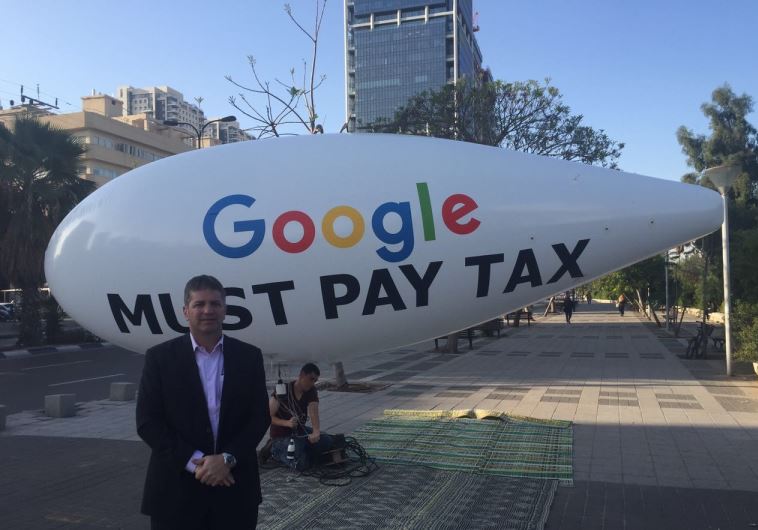'Google must pay tax,' protest blimp outside company's Tel Aviv office reads
Kisch bill would require Google, Facebook and other online companies with bases in Israel to pay VAT.
 Likud MK Yoav Kisch stands next to protest blimp calling for Google to pay taxesUpdated:
Likud MK Yoav Kisch stands next to protest blimp calling for Google to pay taxesUpdated: